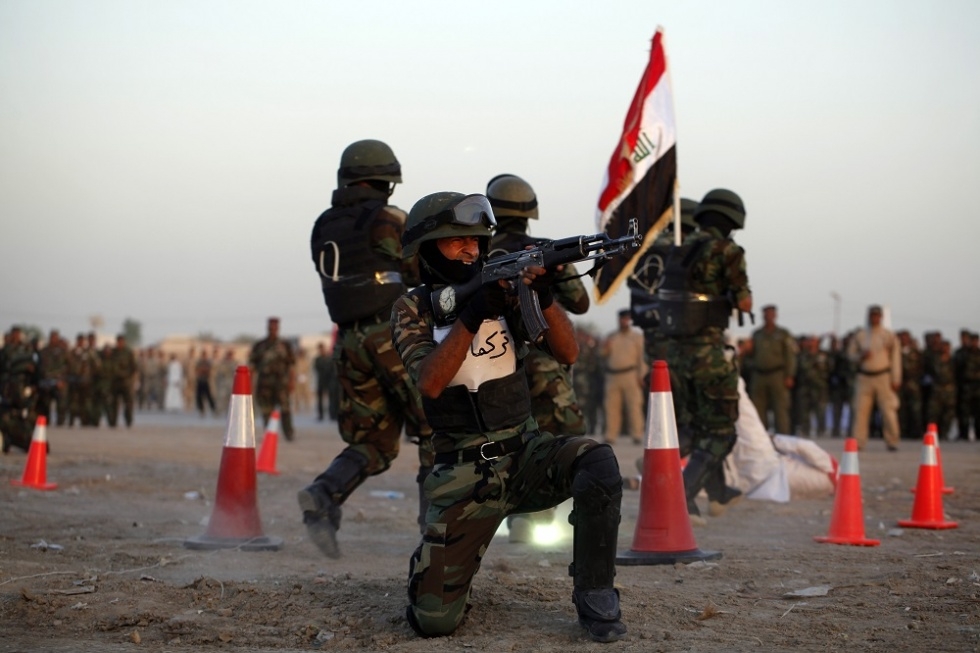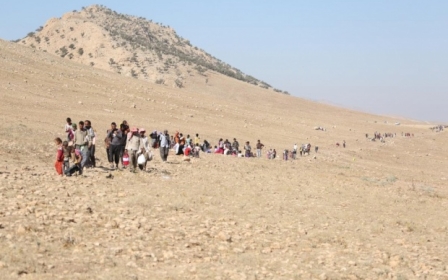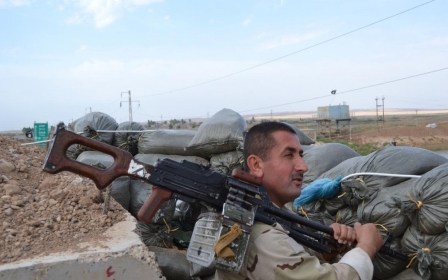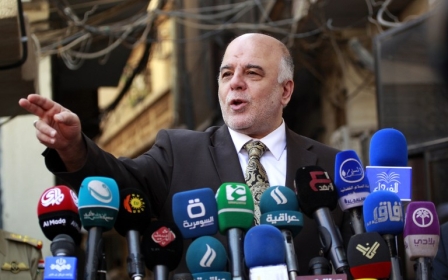Iraqi army months away from major offensive: US officials

The Iraqi army is still months away from staging a major offensive to retake ground lost to the Islamist State group and is regrouping after suffering battlefield defeats this year, US military officials said Thursday.
Iraqi security forces were now able to stage small-scale attacks against the Islamic State group but needed time to plan and train for a larger operation, even with the aid of US-led air strikes, one military official told reporters.
"It's well within their capability to do that [counter-attack], on the order of months, not years," said the official, speaking on condition of anonymity.
But he added: "It's not imminent."
Asked when the Iraqi army might be ready to launch an operation to push the Islamic State group out of the northern town of Mosul, the official said it could be up to a year.
Officials at the US military's Central Command headquarters acknowledged the pace of the bombing raids by American and allied warplanes has been limited by the Iraqi army's shortcomings, as it was not on the move and mainly in a defensive position.
There have been more than 600 strikes in Iraq and Syria since 8 August , officials said, a much smaller number when compared to previous air campaigns in Libya or the 2003 US invasion of Iraq.
The scope of the air strikes also has hinged on how often the IS group moved in larger numbers in the open, leaving themselves open to attack.
Under the Shiite-led government of former prime minister Nuri al-Maliki, the Iraqi army had deteriorated with some capable senior officers replaced by political loyalists and equipment neglected, the official said.
But US military advisors based in Baghdad and Erbil were working to shore up the Iraqi army, according to officials.
A Sunni Muslim village in western Iraq fell to the Islamic State on Thursday, breaking the weeks-long resistance put up by village tribal defenders.
An Iraqi army unit stationed in the village of Zauiyat albu Nimr, which has been under siege since early October, was evacuated by helicopters in the early hours of the morning on Thursday, along with tribal leaders, a source told Reuters.
"Islamic State are out to purge the village of [Iraqi tribe] Bu Nimr members," he said, speaking in Baghdad.
"Sleeper cells inside the village have been assisting the Islamic State by providing the names and the locations of the houses of prominent resistance members.”
He warned that “a list of 200 names that include the high officers in our village has been set and all of these names are to be killed."
Fears have been mounting for weeks that Anbar, the largest province in Iraq, was on the verge of falling to IS.
For the first time, US officials left open the possibility advisor teams could eventually deploy to the province.
"I can't tell you when" advisers may operate out of Anbar, the official said. "There's been a lot of discussion and planning."
Such a move could put US forces at more risk, given the strength of the Islamic State group west of Baghdad, and open President Barack Obama up to criticism that he is escalating the American commitment despite a vow not to have "boots on the ground."
Obama's war strategy calls for helping to persuade Sunni tribes to confront the Islamic State militants, but officials said that effort - led by Baghdad - was only at a preliminary stage.
More than one tribe had joined the fight but "it's not a widespread tribal uprising," the official said.
Many Sunnis, who felt alienated by the previous Baghdad government, were "waiting to see which way the [Prime Minister Haider] Abadi government is going to go," he said.
IS fighters have also tightened their siege on Mount Sinjar in northern Iraq and on Wednesday killed a leading commander of Yazidi forces defending the area.
Al-Sheikh Khayri had come to Iraq from Germany, which has large Yazidi community, to defend the Yazidis in his historic homeland, who have come under assault from IS who consider the religious minority community to be “devil-worshippers.”
"The humanitarian situation became very difficult because there is very little food," Khalaf Mamu, a Yazidi fighter, told AFP on Thursday.
He said around 1200 fighters were defending Mount Sinjar.
IS renewed their assault on the mountain on Monday after besieging it earlier in the year.
300 IS fighters with armoured vehicles attacked turned their sights on the mountain after seizing nearby villages, commander Dawud Jundi told AFP.
The original siege on Mount Sinjar by IS forces was a major factor in provoking US intervention in the conflict in Iraq.
Hundreds of Yazidis managed to escape the siege thanks to the intervention of the Kurdish People’s Protection Units (YPG) though the escape route they created has now allegedly been broken.
IS stalled in Kobane
Officials said it was too soon to judge whether President Barack Obama's strategy to defeat the Islamic State group was succeeding because the war effort is in its early stages.
But commanders have said the initial goal of the air strikes was to stop the advance of the militants across Syria and Iraq, buying time to train and arm local forces to eventually roll them back.
In at least one battleground, in the mainly Kurdish town of Kobane in northern Syria, the American air strikes appear to have succeeded in helping halt the onslaught of the militants, officials said.
A weeks-long offensive by the militants around the border town has stalled and Kurdish fighters will likely be able to hold out indefinitely with the help of air raids, officials said.
The front lines between Islamic State militants and Kurdish forces have not moved for more than a week, despite a concerted push by the well-armed militants.
"If you look at what's happened over the last week and a half, really the line in Kobane hasn't really changed much," said a second official at Central Command.
"I think unless something happens out of the current paradigm of what [IS] is doing, I think the Kurdish defenders... are going to be able to hold."
The fate of Kobane has grabbed headlines and now carries crucial symbolic importance for both the IS group and the US-led coalition.
Officials said the Islamic State group had not given up its assault on the town, and would likely keep up its offensive. Reports emerged on Thursday that the group was also making advances in smaller Kurdish villages close to Kobane, while the US-led anti-IS coalition focused its sights on the border town.
But a failure to prevail in Kobane will present the militants with a propaganda problem, as it has painted itself with an aura of inevitability, the official added.
In Washington, Pentagon chief Chuck Hagel acknowledged "mixed" results in the war effort but said: "We believe that our strategy is working."
New MEE newsletter: Jerusalem Dispatch
Sign up to get the latest insights and analysis on Israel-Palestine, alongside Turkey Unpacked and other MEE newsletters
Middle East Eye delivers independent and unrivalled coverage and analysis of the Middle East, North Africa and beyond. To learn more about republishing this content and the associated fees, please fill out this form. More about MEE can be found here.




